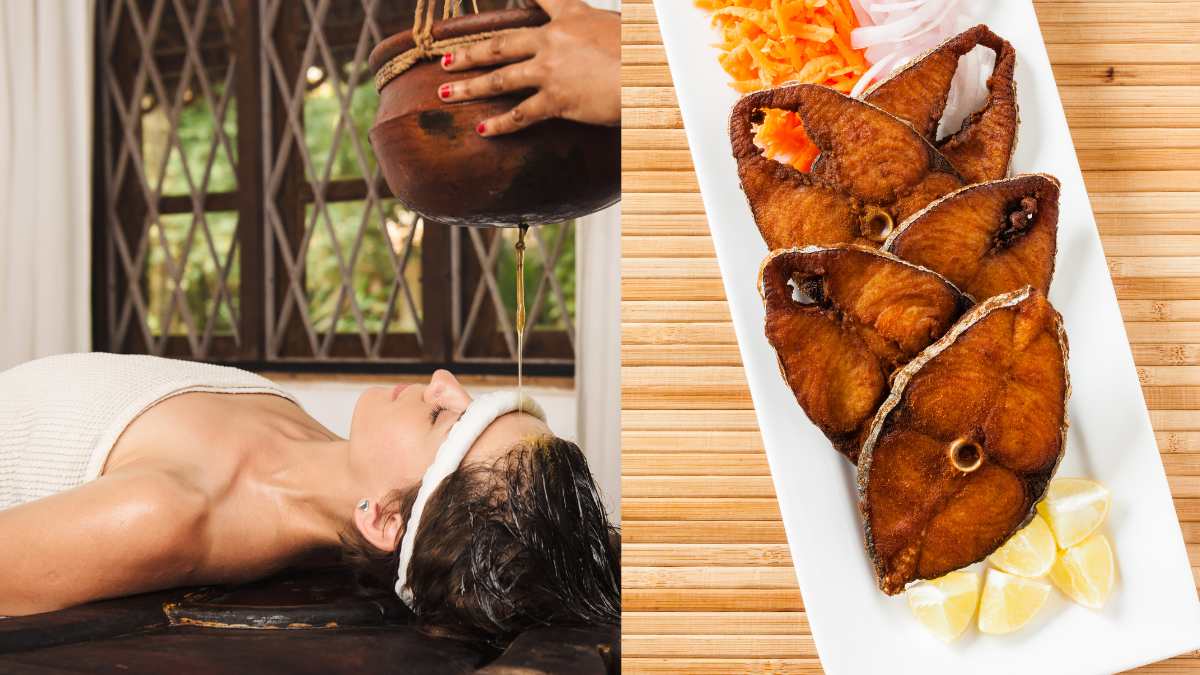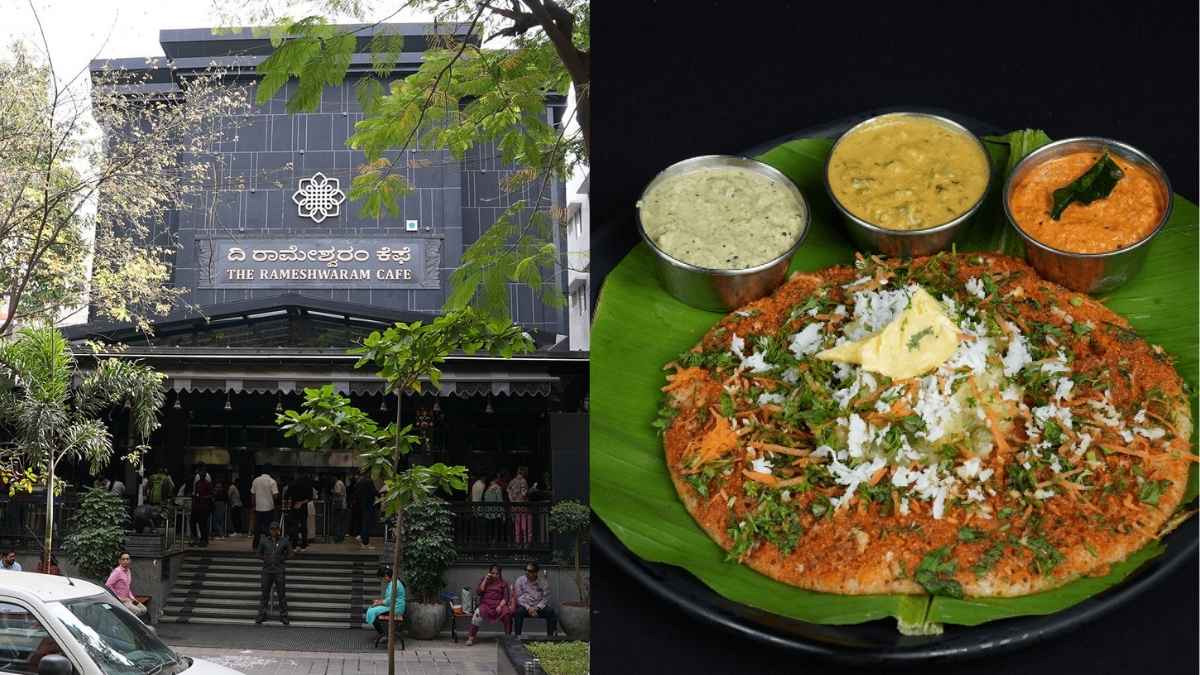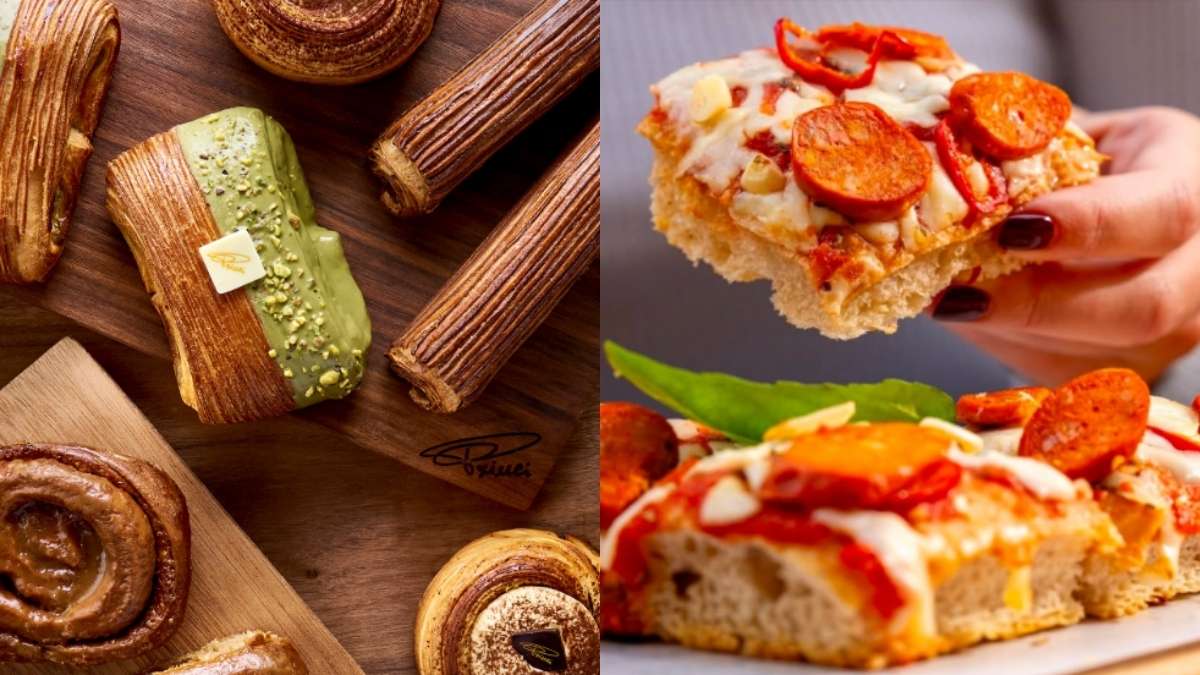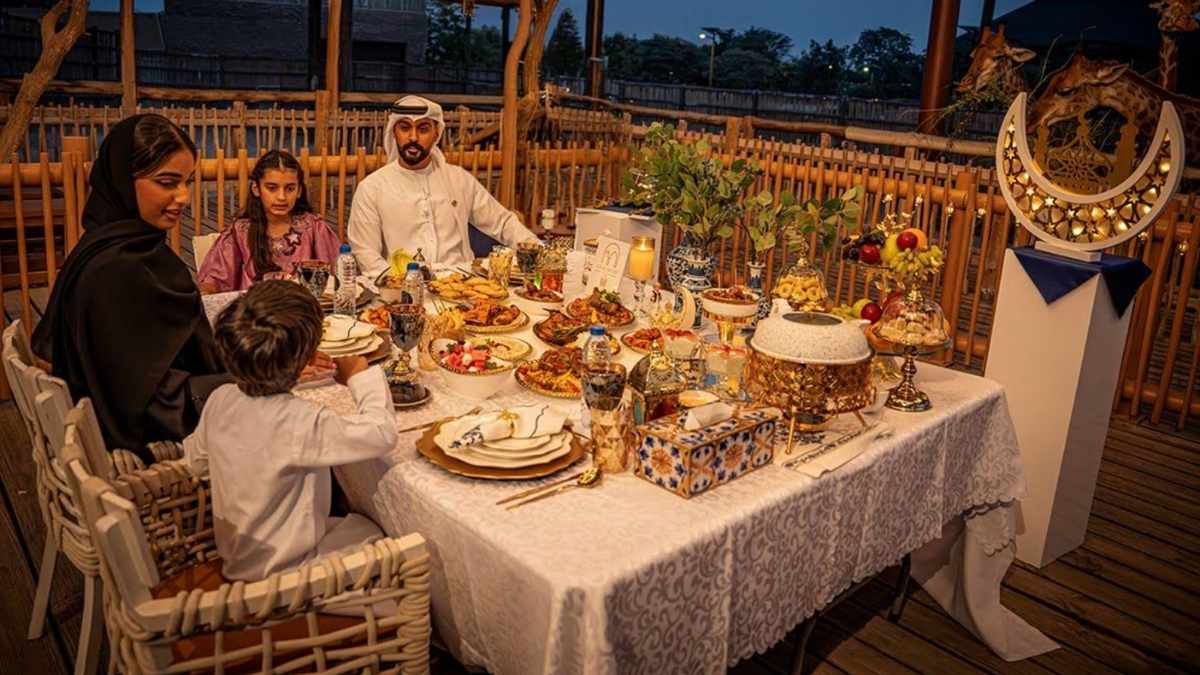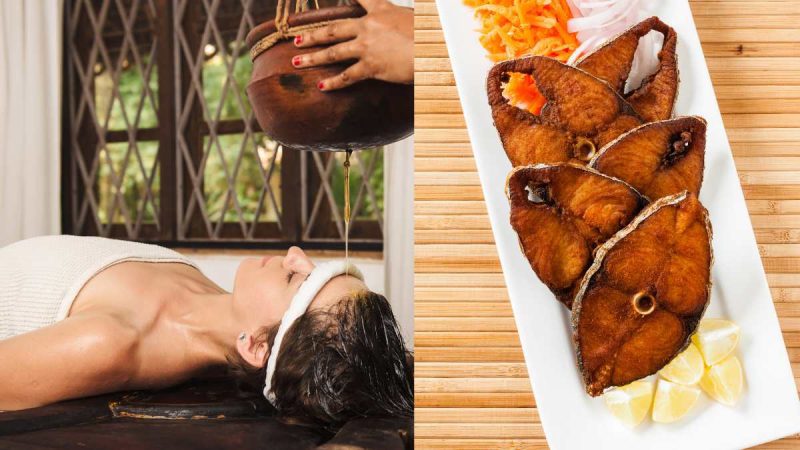While North India celebrates Choti Diwali, in the southern regions of India, particularly the Konkan coast, Naraka Chaturdashi is celebrated with gusto. Observed a day before Badi Diwali, it commemorates the day Lord Krishna vanquished the demon Narakasura. On the night of Naraka Chaturdashi, Mangaloreans follow an ancient coastal ritual of an oil bath followed by a freshly prepared fish and seafood meal. It’s not taboo to eat non-veg on Diwali in coastal Karnataka. Read on to know the reason behind this unique ritual.
Mangaloreans Celebrate Naraka Chaturdashi With Oil Baths And Fish Meals

As a Mangalorean, the night of Choti Diwali, celebrated as Naraka Chaturdashi, would mean following a unique ritual. Firstly, fresh flowers would be placed near water sources in our homes. Marigolds and roses adorn taps in kitchens and bathrooms. Next, we heat oil and massage ourselves with it. This would be followed by a relaxing bath, after which we tuck into a freshly prepared fish meal, particularly a seafood feast, cooked in coconut oil.
The tradition of taking an oil bath and indulging in a seafood feast is followed by Konkani and Tulu-speaking communities in Mangalore. And its origins trace back to Lord Krishna. While it may seem simple on the surface, it has a deep cultural and historical significance. After having defeated the demon Naraka Sura, Lord Krishna was covered in blood. To wash the blood off his body, he applied oil to his body and took a bath.
Also Read: This 64-YO Legendary Eatery Near Mangalore Serves A Unique Horlicks Ice Cream
Seafood Meal Has A Health & Cultural Significance
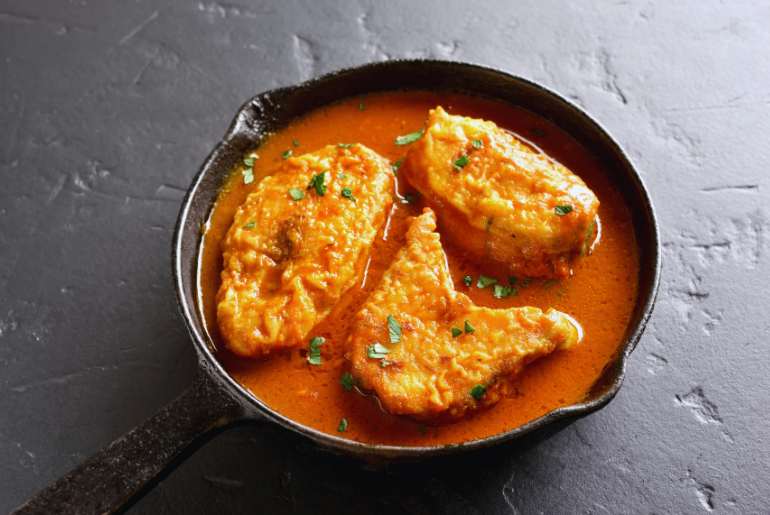
To date, people from coastal Karnataka celebrate the triumph of good over evil, Naraka Chaturdashi, by taking an oil bath. Many follow it up with a freshly cooked meal of fish delicacies. Fried fish, fish curry-rice and other seafood preparations grace lunch and dinner tables. After a relaxing bath, Mangaloreans indulge in a seafood feast considered auspicious and ritualistic.
Eating fish after a bath is believed to be warming and energising for the body. It helps restore internal balance. From a health perspective, the healthy fats and protein packed in seafood are believed to nourish the body during the changing weather, particularly between the end of the monsoon and the beginning of the winter season.
Also Read: This 500-YO Ritual In Odisha Turns Diwali Into A Sacred Reunion Between Families And Their Ancestors
In many coastal cultures, fish is seen as a blessing from the sea, symbolising wealth and abundance. Indulging in seafood on Naraka Chaturdashi is believed to bestow prosperity in one’s life.
Will you celebrate Choti Diwali like Mangaloreans this year with oil baths and fish meals?
Cover Image Courtesy: Canva Pro/Gilitukha and Solomonjee
For more such snackable content, interesting discoveries and the latest updates on food, travel and experiences in your city, download the Curly Tales App. Download HERE. First Published: October 19, 2025 5:17 PM
